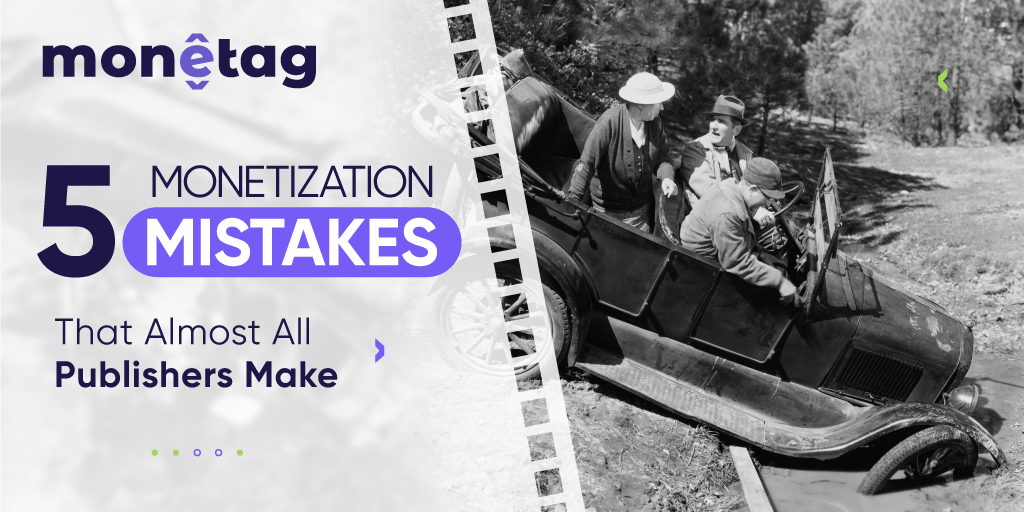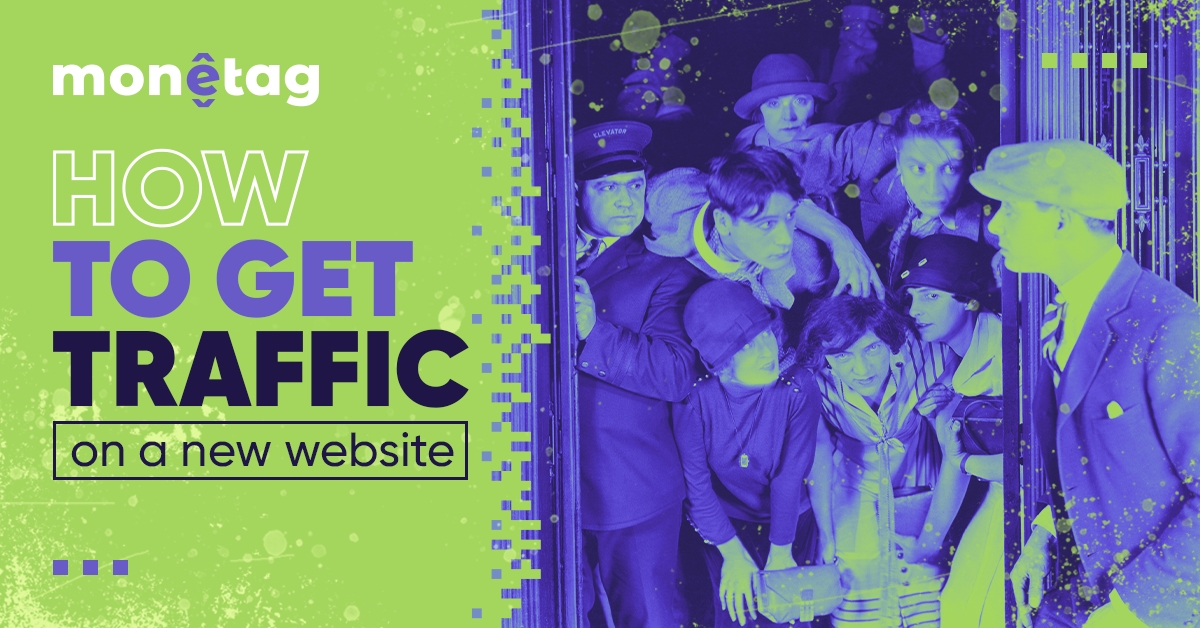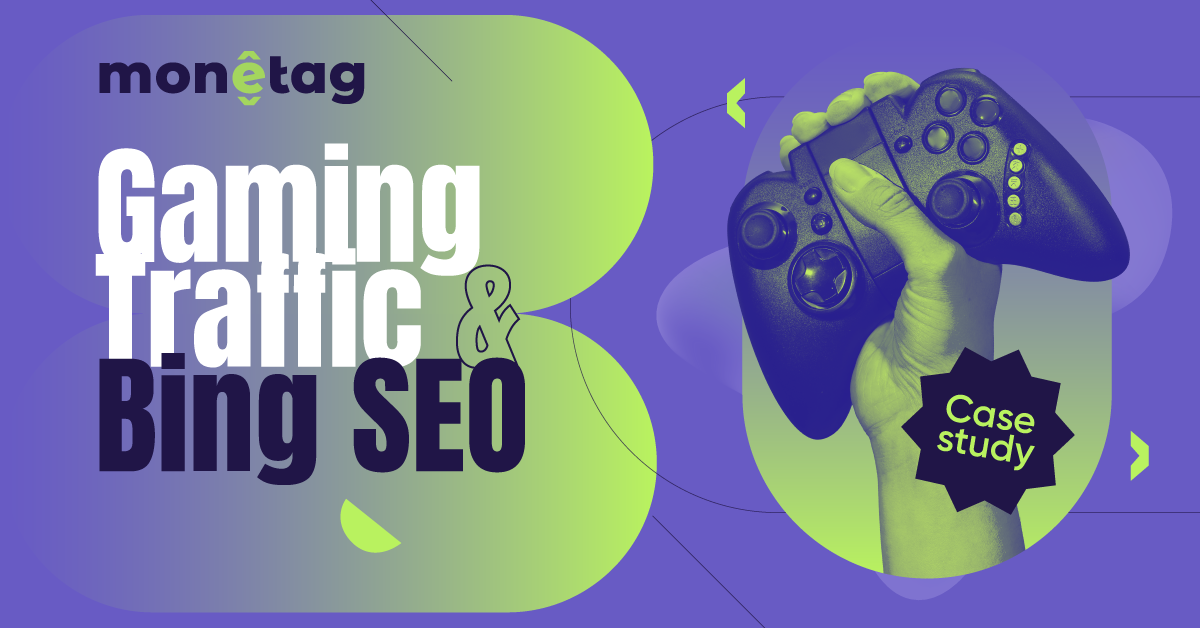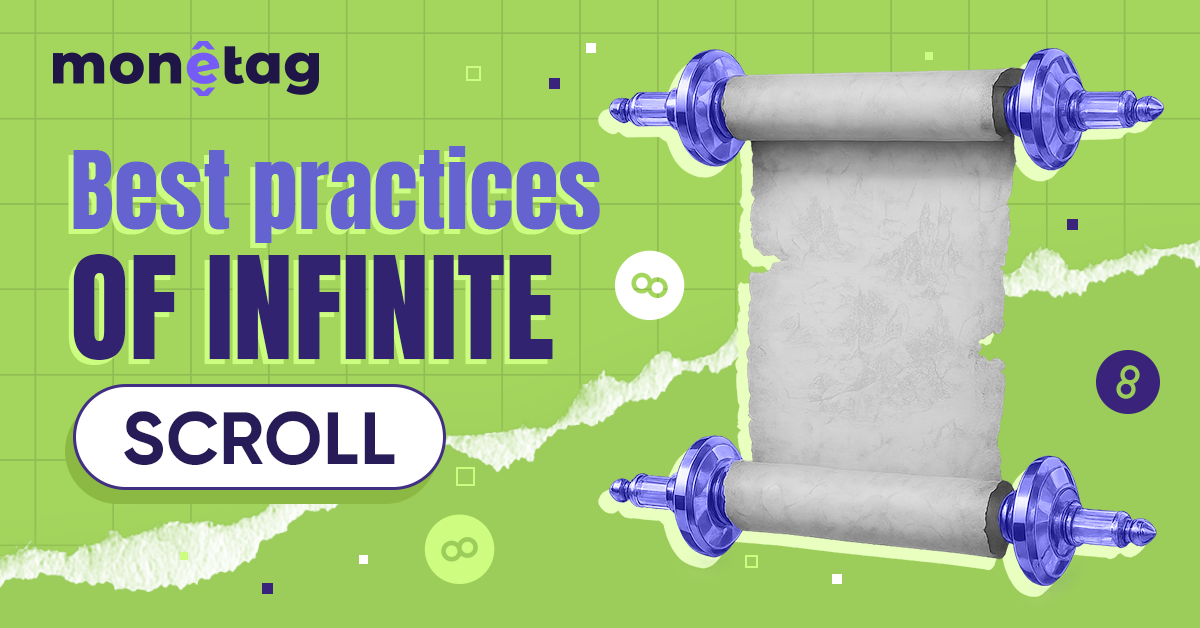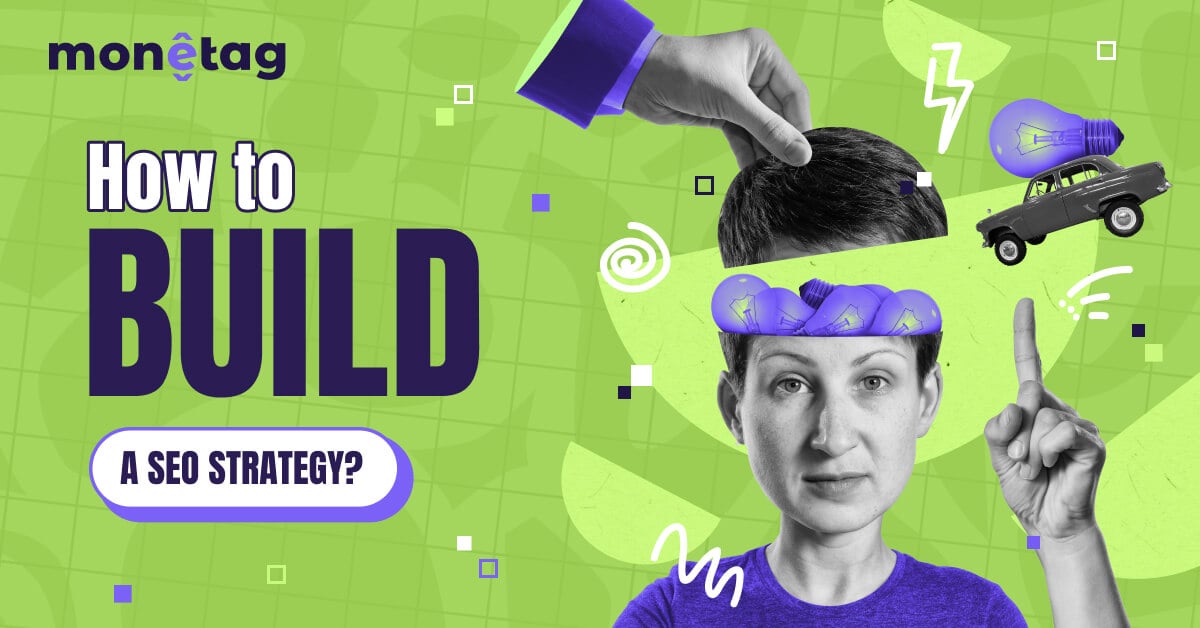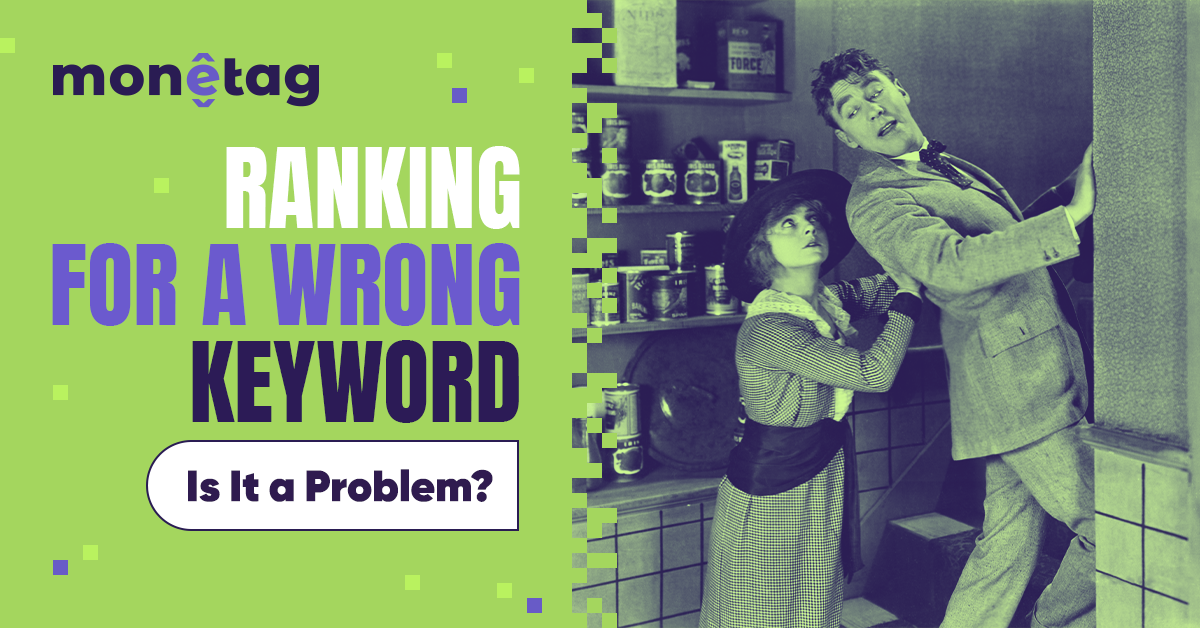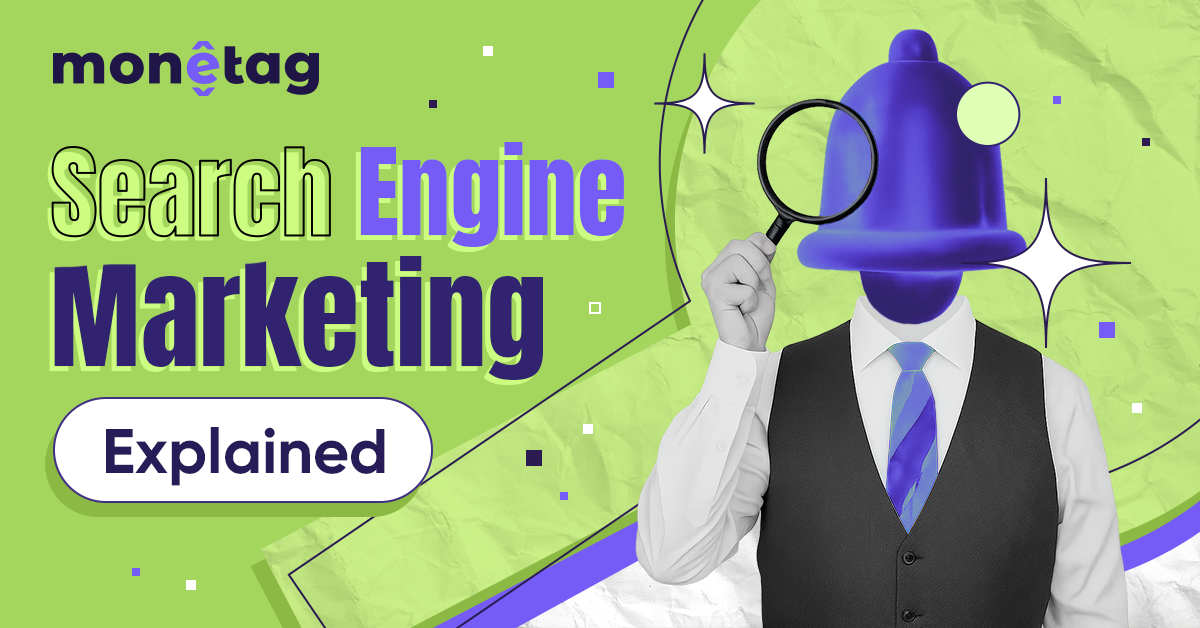Top 5 SEO Mistakes that Can Ruin Your Monetization: How to Avoid Them? [Part 1]
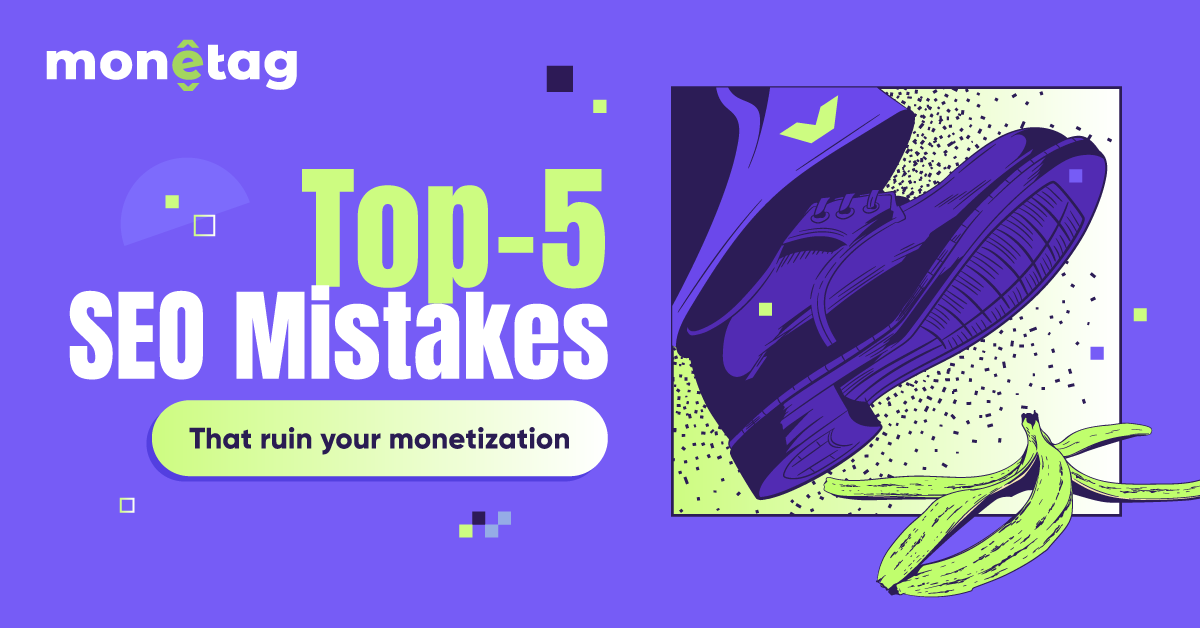
This post is also available in:
It’s hard to deny that SEO is a good thing, and every website owner needs it. While far from all publishers have the time and inspiration to become SEO experts, there is a serious risk of optimizing your site wrongly.
Not all SEO efforts are equally beneficial. The harsh truth is that some of your SEO efforts can rather harm your website performance than improve it.
The risk comes from potential SEO errors that can literally ruin all of your monetization efforts. But don’t worry; today we will discuss these SEO problems and methods to avoid them.
Common SEO Mistake 1: Copied content
Copied texts you took somewhere else without rephrasing them can ruin your rankings entirely and for long. Avoid:
Copied meta descriptions, H1 tags across pages, paragraphs, and entire sections of the text (which is plagiarism).
How to fix that?
- Avoid scraping content: Scraping content from other websites and using it as your own is not only unethical but can also hurt your SEO efforts. Always create original content.
- Syndicate content carefully: If you want to syndicate your content to other websites, make sure to use a canonical tag to tell search engines the original source of the content. Also, make sure to check all texts for plagiarism, especially if they were written by freelancers or guest bloggers – make sure that you don’t post copied content without even knowing about that.
- Use 301 redirects: If you have multiple versions of the same page or similar content, use 301 redirects to send users to the preferred page. This can also help consolidate any backlinks to the preferred page, which can improve its ranking.
- Use meta tags: Use meta tags like “noindex” or “nofollow” to tell search engines not to index certain pages or follow certain links. This can help avoid duplicate content issues.
Here is a comment from Ivan, our partner, and experienced publisher:
“The most harmful thing to do for your SEO is to copy content. Talking about content in general, aside from copying, you should also avoid unstructured copies and fail to formulate your positioning accurately. If you have issues with precise positioning and high-quality texts, then something is definitely wrong with your SEO.
My advice:
- Ask the opinions of SEO specialists;
- Always choose a CMS that is optimized, fast, and with the possibility of SEO work;
- Make sure you have a well-optimized web server;
- Again, original, well-structured, and quality content.
And be patient – SEO takes time.”
Common SEO Mistake 2: Non-optimized links
The links on your website play a crucial role in guiding your visitors and influencing their overall user experience. In fact, when ranking sites, Google takes into account the quality of user experience as one of the important factors. Therefore, it’s crucial to optimize your link architecture to avoid any negative impact on your search performance.
Your worst enemies are:
- Links to HTTP pages on an HTTPS site: links to outdated and insecure HTTP pages may cause an unsafe dialog between users and the server. Make sure that all your links are updated to HTTPS.
- URLs containing underscores: search engines may misinterpret underscores and document your site index incorrectly. It’s better to use hyphens instead.
Other common linking mistakes include broken internal or external links, nofollow attributes in external links, pages with only one internal link, and page crawl depths of more than three clicks.
Here is what Servando Silva, a famous media buying blogger, says about HTTP/HTTPS protocols, redirects, and URLs in general:
“There are many aspects of SEO, but if I had to name one that many people have when getting started, it would be setting redirects and canonicals correctly. Many hostings don’t do a redirect between the www and non-www version by default, resulting in 2 different versions of your site. Also, some of them might avoid the HTTP to HTTPS redirection, and now you have 4 duplicated clones of your site. If, on top of that, you don’t set canonical URLs, you’re in for a wild ride as Google will have issues trying to understand which is the best version of your URL to display in the SERPs, and they might rather show another site instead.”
How to fix that?
- Use descriptive anchor text: use clear and concise anchor text that describes the content of the linked page. This helps both users and Google understand the context of the link.
- Check for broken links: regularly check your website for broken links and fix them as fast as you can. Broken links harm user experience and negatively impact your search rankings.
- Avoid link farms: link exchange schemes and farms are used to artificially inflate the number of backlinks to your website. These practices are considered spammy and can lead to penalties from Google.
- Stick to relevant and authoritative external links: linking to external pages that are relevant to your content and have high authority helps establish your website as a trusted one.
- And backlinks, of course. Regarding backlinks, we have a tip from Mohsen, the owner of a popular cloud hosting and our publisher:
“Make sure to have valid backlinks to the site and sites that are backlinked must have traffic.”
Plus, a valuable insight from Abhishek, the blogger:
“Most publishers don’t focus on off-page SEO or link-building strategy from the very beginning. It is important to focus on quality blog posts and try to rank for a few specific keywords. Once you rank for a specific keyword, then chances are higher that you’ll likely rank for “the correlated keywords” too if well optimized and the content is insightful.”
Common SEO Mistake 3: Indexability issues
Unfortunately, ignoring website indexability is a very common SEO error publishers make. Bad news for such publishers – non-indexed pages just don’t show up in Google results, which means that users won’t find them either.
Various factors can prevent your website from being indexed. For instance:
- Again, duplicate meta data and content are harmful – they can confuse search engines and make it challenging to identify which pages to rank for specific search terms. Duplicate title tags, descriptions, and body content force Google to make decisions about which pages to rank, even though publishers could prevent these issues and guide Google the way they want.
- Hreflang gaps and conflicts for multilingual websites are other factors that can impact your website’s indexability.
How to fix that?
- Check your texts for originality and remove/rewrite duplicate ones. For example, you can use Grammarly for that.
- Optimize title tags and meta descriptions: each page on your website should have unique title tags and meta descriptions that accurately describe the content on that page. Use relevant keywords in the titles and descriptions.
- Ensure proper use of hreflang tags: if you have a multilingual website, make sure to use hreflang tags to indicate the language and country targeting of your pages.
- Fix broken links: use a broken link checker tool to identify and fix any broken links on your website. You can rely on Chrome Extension or Ahrefs for that.
- Implement AMP (Accelerated Mobile Pages) HTML: if you have a mobile website, implement AMP HTML to ensure that your website loads quickly and is easily accessible for mobile users.
Common SEO Mistake 4: Ignoring website performance
Slow page load times can ruin even the most quality websites and lead to lower user engagement. As a result, you will have a whole bunch of issues, from a high bounce rate to decreased visibility in search engine results pages.
How to fix that?
- Measure your page speed using tools such as Pingdom or Google’s page speed suggestions for mobile and desktop. Identify areas for improvement, such as over-complicated JavaScript or CSS files, which can be addressed by code minifying. Focus on simple, quick wins, like compressing JavaScript and CSS.
- Optimize response headers for browser caching and remove unnecessary lines, comments, and white space from your web page code.
- Use an image compressor to make your visuals load faster. This way, you will improve overall user experience, ensure a positive impact on Google rankings, boost customer engagement, and very likely – increase conversions.
And here is another opinion from Abhishek:
“Publishers should audit their websites and use SEO tools to ensure that they follow the best SEO practices. The key things to check are metadata, page experience, page speed, backlink profile, canonical tags, etc.”
Common SEO Mistake 5: Failing to address crawlability issue
Crawlability walks hand in hand with indexation. If you fail to make things easy for Google crawlers, get ready that they can easily miss some of your pages. Still, if you fix that, Google will identify the right links for the right users, leading to better search engine results pages (SERPs).
In general, the most common crawlability issues include 4xx errors, broken internal images and links, internal links with nofollow attributes, pages with one internal link only, orphaned pages, missing sitemap.xml, temporary redirects, etc.
How to fix that?
- Check the website for broken/blocked elements: ensure all the internal and external links on your site are functional. Broken links can hinder search engines from crawling your site efficiently.
- Submit sitemaps to search engines, which will help them discover and crawl all the pages you have there.
- Check the robots.txt file to ensure that search engine crawlers are not blocked from accessing any important pages on your site.
- Simplify site structure: make it clear and concise so that search engines can easily navigate and crawl your site.
- Use proper heading tags (H1, H2, H3) to structure your content correctly, making it easier for search engine crawlers to understand your content.
SEO tools recommended by our publishers
And for a dessert, here are some SEO analysis tools suggested by our publishers, meaning that these tools are well-tested and efficient:
- Ahrefs
- Google’s Search Console
- Moz
- SEMrush
- Screaming Frog
So, it only remains to follow the recommendations, rely on efficient tools, and… wait for the second part of the article! We will share some more SEO tips in the future to make sure that you are covered from mistakes. See you soon at Monetag!
